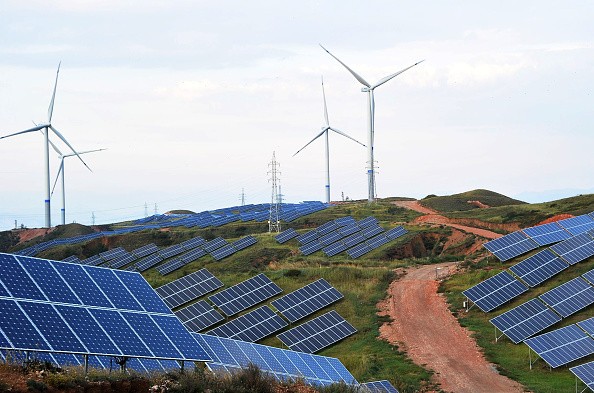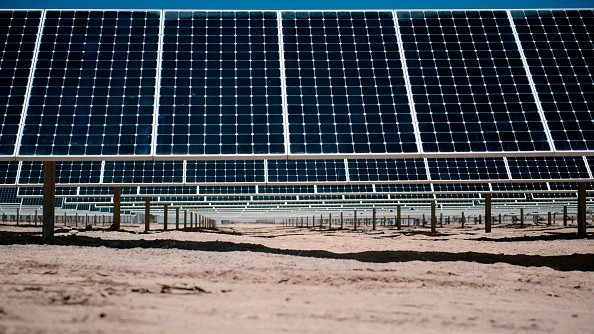Rationing of gas is being planned in Germany. France's power system operator is urging people to use less electricity. Protests are erupting in the United Kingdom over the latest energy price spike, which has put millions of people in "fuel stress," according to one local think tank. Europe is facing a major energy crisis.

On-Going Issue
The issue has existed for years, and it reflects European governments' constant belief that no matter what happens, there will always be gas from Russia. After all, even during the Cold War, Russia supplied Europe with billions of cubic meters of gas. Things are different now, and it isn't simply because of the Ukraine conflict.
For a few years, Europe has been working hard to reduce its reliance on all fossil fuels, not just Russian gas. According to the EU, renewable energy sources will account for 37.5 percent of gross power consumption in 2022, with wind and hydro accounting for two-thirds of total renewable energy output. Why, therefore, does Germany have to prepare for gas rationing while France asks its inhabitants to reduce their power consumption? That has anything to do with the conflict in Ukraine. The dispute appears to have driven EU nations - and Downing Street - into a frenzy, attempting to distance themselves from Russia in whatever way they can, including restricting Russian gas supplies.
Ceasing Trade

The three Baltic republics have already indicated that they will cease buying Russian gas on April 1. Russian President Vladimir Putin's demand for payment in rubles for the gas Russia delivers appears to have only fueled European countries' determination to abandon the gas. For the time being, they are relying on gas from storage. Later, either LNG will arrive at the Klaipeda terminal in Lithuania, or an interconnector with Poland will be built. Lithuania is urging the rest of the European Union to follow its lead. Surprisingly, the Baltics do not appear to have replaced their reliance on gas with reliance on wind and solar.
The same may be said of the remainder of the European Union. Bloomberg reported earlier this year that renewables were "crowding out" natural gas across the EU. The story quoted research by Ember, an environmental think organization, in which the principal author stated:
"These are turning points and paradigm changes in which governments and corporations begin to take this considerably more seriously." Alternatives exist, are less expensive, and are likely to become even more affordable and competitive in the future. "Renewables are now a benefit, not an expense," said Charles Moore.
So, why is there such a fight for gas now? Why not ramp up the development of new wind and solar farms to demonstrate to Putin what Europeans can do? This is one of the most perplexing topics of our day. The solution must involve references to the prices of copper, steel, polysilicon, and virtually every other metal and mineral product. Furthermore, constructing these facilities takes time, which is longer than, say, switching to LNG (assuming you have import terminals) or coal.
Indeed, in a newly revealed plan to cut Russian gas use and oil and coal, the European Commission relied heavily on additional gas and coal rather than wind and solar.
Replacing Gas

The EU would strive to replace 50 billion cubic meters of yearly Russian gas use with LNG from other sources and another 10 billion cubic meters with pipeline gas from other sources, according to a breakdown of the plan reported by German Die Welt. That's a total of 60 billion cubic meters of Russian gas consumed a year, out of 155 billion cubic meters. According to the idea, another 20 billion cubic meters might be replaced by utilizing additional coal, according to, Industry and Internal Market Commissioner Thierry Breton.
This is the same Europe advocating for the abolition of coal, the same Europe that intended to close all of its coal-fired power facilities by 2030 to satisfy the Paris Agreement's emissions reduction objectives. To replace another 10 billion cubic meters of Russian gas, same Europe is counting on replacing natural gas with fuel oil.
The European Commission appears to be seeking to substitute other fossil fuels for more than half of its Russian gas use. Wind and solar power are estimated to replace 22.5 billion cubic meters of Russian gas, with wind contributing 10 billion cubic meters and solar contributing 12.5 billion cubic meters. That's not much for an area on track to become the greenest globally shortly.
Not Enough
As the EU finds itself in a gas pickle, the reality of energy supply and use is reasserting itself. If its strategy calls for so much greater fossil fuel usage, fossil fuels must be easier - and faster - to get by and perhaps even cheaper than wind and solar.
Related Article : Resurgence of Coal Mining May Direly Affect Global Climate Goals
For more environmental news, don't forget to follow Nature World News!
© 2025 NatureWorldNews.com All rights reserved. Do not reproduce without permission.

